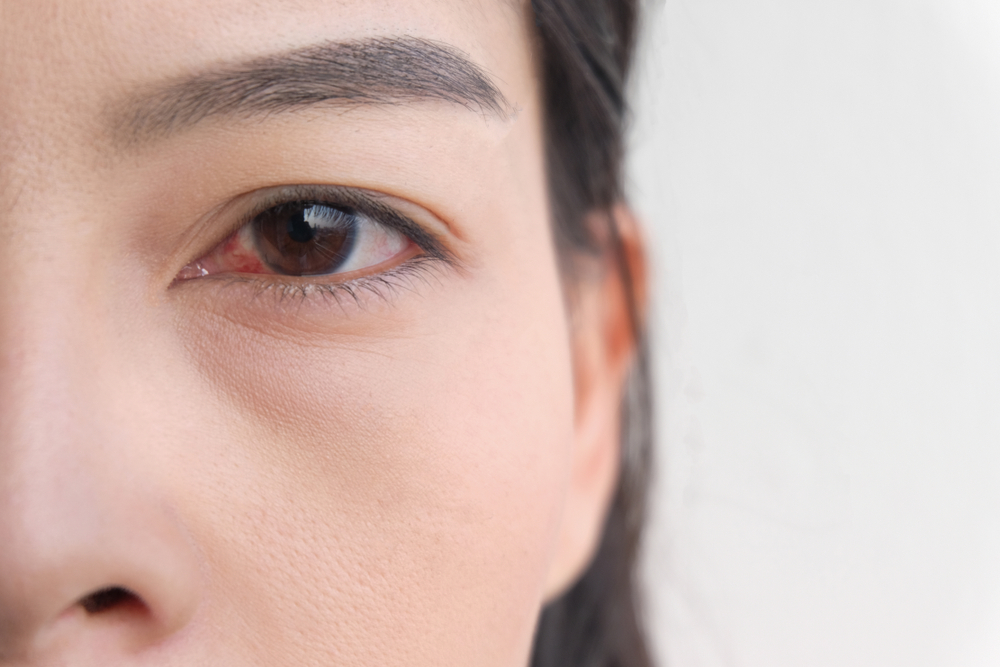
Have you ever felt a sting or burn in your eyes that won't go away? Or maybe your eyes get red and irritated for seemingly no reason? If you've been experiencing these issues, you may be suffering from dry eyes. But could this common condition be a symptom of something more serious?
What is dry eye?
Dry eye is a common condition that occurs when your tear glands don't produce enough tears to lubricate your eyes. This can make your eyes feel uncomfortable and cause vision problems. In most cases, dry eye is a chronic condition that can be managed effectively with the right treatment and lifestyle changes.
Many people experience dry eye symptoms from time to time, but for some, it's a persistent problem that can interfere with everyday activities like reading, driving, or working on a computer. Dry eyes can also make it more difficult to wear contact lenses and can cause complications during and after eye surgery. In severe cases, chronic dry eye can lead to eye damage and vision loss.
Recognizing the Symptoms of Dry Eye
Understanding the symptoms of dry eye is the first step in getting the help you need. The symptoms can vary from person to person, but they generally include a stinging, burning, or scratchy sensation in your eyes. You may also notice that your eyes get red and irritated or that they're more sensitive to light.
Other common symptoms of dry eye include a feeling of something being in your eyes, difficulty wearing contact lenses, and blurred vision or eye fatigue. Some people with dry eye also have excessive tearing, a condition known as 'watery eyes.' This might seem contradictory, but it's actually your body's response to the irritation caused by dry eyes—it's trying to soothe your eyes by producing more tears.
Causes of Dry Eye
There are many potential causes of dry eye, including aging, certain medical conditions, and environmental factors. As you get older, your body naturally produces fewer tears, which can lead to dry eyes. Women are especially prone to this condition due to hormonal changes that occur during menopause.
Medical conditions that can cause dry eyes include diabetes, rheumatoid arthritis, lupus, scleroderma, Sjogren's syndrome, thyroid disorders, and vitamin A deficiency. Certain medications, such as antihistamines, decongestants, hormone replacement therapy, and antidepressants, can also cause dry eye.
Environmental factors like dry air, wind, smoke, and prolonged use of digital screens can cause or worsen dry eye symptoms. Wearing contact lenses for extended periods or having laser eye surgery can also increase your risk of developing dry eyes.
When Dry Eye Becomes Serious: Indications and Implications
While dry eye is often a chronic yet manageable condition, there are times when it can indicate something more serious. Persistent dry eye symptoms can sometimes be a sign of an underlying systemic disease, such as rheumatoid arthritis or Sjögren's syndrome. In rare cases, it may also be a sign of a more serious eye condition, like a corneal ulcer or an infection.
Severe dry eye can also lead to complications that can threaten your vision, such as corneal abrasions, corneal ulcers, and even vision loss. These complications are relatively rare, but they underscore the importance of taking dry eye symptoms seriously and seeking professional help.
Don't just assume that your dry eye symptoms are a normal part of aging or something that you just have to live with. If you're experiencing persistent dry eye symptoms, it's important to seek medical attention to rule out any serious underlying conditions.
The Importance of Seeing an Ophthalmologist
If you've been experiencing persistent dry eye symptoms, it's crucial to see an ophthalmologist. An ophthalmologist is a medical doctor who specializes in eye and vision care. They can diagnose dry eye, identify its cause, and provide appropriate treatment.
During your appointment, your ophthalmologist will perform a comprehensive eye exam, ask about your health history and symptoms, and may conduct specific tests to measure the quantity and quality of your tears. This information will help them determine the severity of your dry eye and the best course of treatment.
Seeing an ophthalmologist for dry eye is not just about getting relief from your symptoms; it's also about protecting your vision and overall eye health. Dry eye is not just a minor annoyance; it's a medical condition that can lead to serious complications if left untreated.
Diagnosis and Treatment
After examining your eyes and evaluating your symptoms, your ophthalmologist will be able to diagnose whether you have dry eye. The treatment they recommend will depend on the severity of your condition and the underlying cause.
Some of the most common treatments include artificial tears, prescription eye drops, eyelid cleansers, warm compresses, nutritional supplements, and punctal plugs.
Your ophthalmologist will work with you to develop a personalized treatment plan that's tailored to your specific needs
Living with Dry Eye
Dry eye can be a frustrating and uncomfortable condition, but it's also a manageable one. With the right care and treatment, most people with dry eyes can effectively manage their symptoms and maintain their quality of life.
The key is to take your symptoms seriously and seek professional help. Don't ignore your dry eye symptoms or assume they're just a normal part of aging. Dry eye is a medical condition that requires attention, and it can sometimes be a symptom of something more serious.
If you're experiencing dry eye symptoms, make an appointment with our ophthalmologist at Raleigh Eye Center in our Raleigh, Durham, Reidsville, Henderson, North Carolina, or South Hill, Virginia, offices. We can diagnose your condition and work with you to develop a personalized treatment plan. Call (919) 899-2472, (919) 876-2427 or (252) 492-8021 to schedule an eye exam today.













